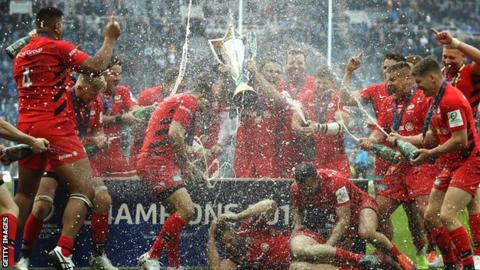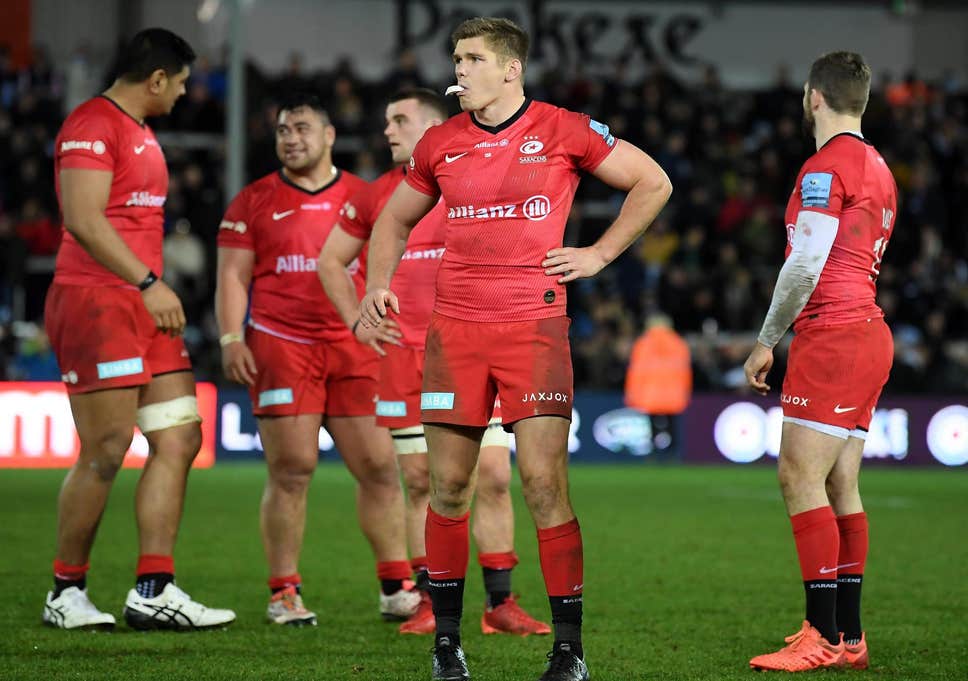Image Credit- The Independent
Over the past three months, rugby union has seen its greatest controversy unfold.
In November last year, London based club Saracens were docked 35 points. Their crime, a consistent, deliberate breach of the Premiership’s salary cap regulations, implemented to create a level playing field for all twelve clubs, preventing those with significant financial backing from dominating domestic rugby.
Initially, the club pleaded their innocence, insisting they had done nothing wrong. And now it has been announced that Saracens will be relegated from the top division down to the second tier of English rugby.
Despite previous warnings and demands that they abide by the rules,
the club have failed to do so, and face the subsequent punishment.
It should be stated that this is not a case of financial mismanagement, an accidental slip of the regulations with no ill purpose. The club intentionally did not disclose their financial records and player wages to the governing bodies for the past 3 seasons, in full knowledge that doing so would reveal their negligence of the rules. This has been systematic cheating on a gross scale, an exploitation that has had, and will continue to have, drastic implications on the sport for a long while to come.
Saracens have been the dominant force in both the English domestic game and on the continent, winning four of the past five Premiership titles and three of the past four European Champions Cups.

This is, on the surface, an outstanding record, but it is a record now marred and tainted with the knowledge that these titles were procured by illegal means. Numerous iconic moments, for both fans and players, are now hollow and empty.
There is little sympathy from other clubs in the division: Exeter Chiefs, who Saracens have beaten to three Premiership titles in recent years, are justifiably aggrieved by their actions.
In their cheating, the club have simultaneously deprived other clubs of their own chance at glory, utilising money they should not have had, and players that they should not have played.
Indeed, the team is certainly star studded, strewn with international stars. Saracens provide the core of the England Rugby team, Mako and Billy Vunipola, hooker Jamie George, Mauro Itoje and Owen Farrell, just a few of the big names on the books.
This level of quality in the team has long drawn suspicion, and rightly so: no other team can lay claim to so many world class players, due to thesalary cap that Saracens so blatantly breached.
The future for both the club and its players is now thrown into turmoil. Next year they will be confined to the second tier, playing the likes of Ealing, Doncaster and the Cornish Pirates. Many of their players will undoubtedly move on to different pastures, bailing from the sinking ship.
Saracens will undoubtedly bounce back from this crisis however, as many other teams have before them. Rangers have hauled themselves back up from the fourth tier to challenge Celtic at the top of Scottish Football again.
Likewise, Italian team Juventus survived their own financial scandal to go on and win eight titles in a row.
What cannot be repaired though is damage done to both the club and the sport’s reputation, especially damning coming off the back off a highly successful World Cup. Nor can the cups Saracens have won be given to those who should have fairly obtained them had they not been cheated out of them.
The future implications still remain unclear.

